Tooth Extractions – Hackensack, NJ
When a Problem Tooth
Has to Go
It’s never anyone’s first choice to have a tooth removed, but in cases of severe trauma or infection, it’s often the best way to prevent a problem affecting one tooth from spreading to those around it. At Anderson Dental Center, our emergency dentistry experts combine the latest techniques and technology to make the procedure as pain-free as possible, and afterward, we can quickly fill the gap with a beautiful, custom-made restoration. Keep reading to learn more about tooth extractions in our Hackensack, NJ dental office.
Why Choose Anderson Dental Center for Tooth Extractions?
- In-House Oral Surgeon: Dr. Imad Tamimi
- Multiple Sedation Options Ensure Comfort
- Evening & Saturday Hours Available
Reasons Why Tooth Extractions Are Necessary
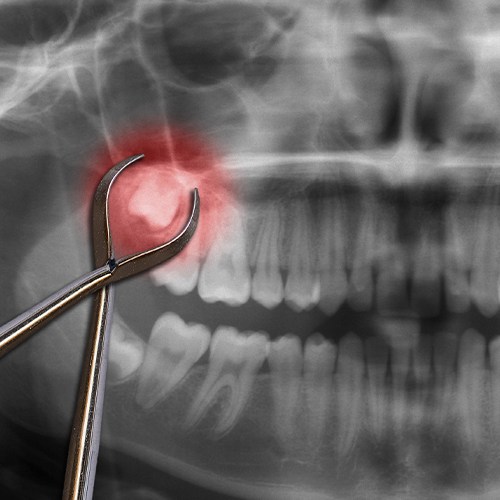
As we mentioned above, tooth extractions are never our first choice. However, there are some cases where it’s the best choice for your oral health. With this in mind, here are a few of the most common reasons we recommend having a tooth removed:
- Decay : Often, we can repair decayed enamel with a filling or crown, but if the damage is too extensive, and the infection is threatening the nearby teeth, the best thing to do is simply remove the tooth.
- Trauma : If the enamel of a tooth is so broken that it can’t be trusted to support a filling or crown, it’s better to extract and replace it.
- Orthodontics : Sometimes, a tooth needs to be removed so there is enough room in the mouth for the rest to shift in response to orthodontic treatment.
- Dentures : Any broken or failing teeth will be removed before fitting a patient for a new denture.
The Process of Removing a Tooth
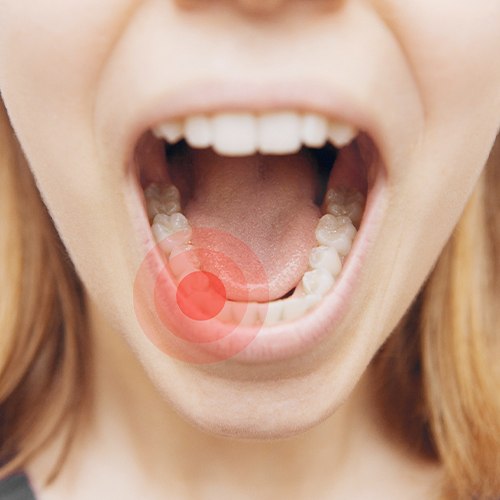
There are two main types of extractions: simple and surgical. A simple extraction is conducted when a tooth has erupted through the gumline. In this case, we can gently wiggle it until it slips out on its own. As for the surgical extraction, this is the approach we take when the tooth is trapped below the gumline. Therefore, we need to make a small incision so it can be accessed and removed. Remember, the first step is always thoroughly numbing the area of your mouth that we’ll be working on, so you won’t feel anything more than some slight pressure from time to time.
Tooth Extraction Aftercare
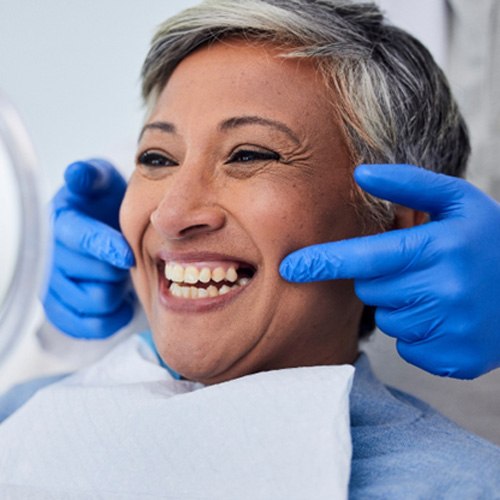
Whether you had one tooth extracted or all of your wisdom teeth extracted, there are some aftercare instructions you need to follow, including:
- Not spitting or using a straw
- Taking OTC pain medication as directed
- Not exercising or lifting anything heavy for at least 24 hours
- Keeping your mouth clean (we will provide you with detailed instructions on how to do so)
- Sticking to soft foods, like oatmeal and scrambled eggs
- Drinking plenty of water to stay hydrated
- Avoiding unhealthy dental habits, like smoking
Understanding the Cost of Tooth Extractions
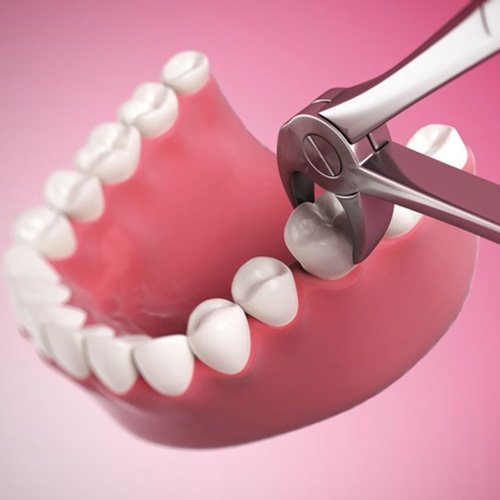
The cost of tooth extractions depends on a few factors. When you visit us for a consultation, we can share some specific numbers with you; we never want our patients to face unpleasant surprises when the time comes for them to pay for their treatment. Our practice is happy to accept a range of insurance plans, and third-party financing is available as well. Most patients find that, with the help of available provisions, their care is relatively easy to afford.
Factors That Can Affect Tooth Extraction Cost
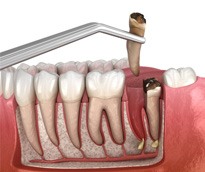
There are a number of factors that can influence the cost of tooth extractions:
- The specific tooth that needs to be removed. The type and location of the tooth that needs to be extracted can have a bearing on how difficult it is to access and remove. For example, wisdom teeth and molars tend to incur higher fees.
- The number of teeth that we need to extract. It stands to reason that the removal of several teeth costs more than the removal of just one or two.
- The overall complexity of your case. Our team can handle both surgical and simple extractions. Simple extractions tend to cost less because they require less time and effort on our part.
- Additional care. Sedation during your procedure, as well as tooth replacement afterward, can add significantly to the total cost of your care. The type of sedation and tooth replacement also has a bearing on price.
Does Dental Insurance Cover Tooth Extractions?
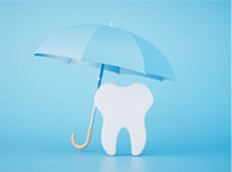
In most cases, yes, dental insurance does cover tooth extractions. Simple extractions are often classified as a minor service, so around 80% of their cost is likely to be covered. Surgical extractions are a major service, so up to 50% of the price may be covered. Our team accepts many different benefits plans, and we are even in-network with a number of popular insurance companies. We will be happy to help you navigate your policy and use it in the most advantageous way.
Other Options for Making Tooth Extractions Affordable

If you do not have insurance, or your insurance will only cover a small portion of the cost of your treatment, ask us how you can apply for financing. We work with CareCredit, a third-party company that provides low-interest and no-interest payment plans for qualified patients. The application process is fast, and most patients receive prompt approval. You may even be able to choose between several different monthly payment amounts, so you can select the one that best fits your budget.
The team at Anderson Dental Center in Hackensack is ready to help you with all of your dental needs, including extractions. If you have questions about the services we provide or our financial policies, get in touch with us. We look forward to speaking with you!
Does Getting a Tooth Extracted Hurt?
One of the questions we get most often from patients is about whether they should expect pain associated with their tooth extraction. You’ll be happy to learn that we’ll numb your mouth completely before your tooth is removed, which means that the most that you’re likely to feel is a slight pressure as your tooth is removed.
You may be a little bit tender once the anesthetic wears off, so you should be sure to closely follow any aftercare instructions that we give you in order to make sure that you’re comfortable and heal quickly.
What’s the Recovery for Tooth Extractions Like?
We will provide you with detailed instructions for how you can heal effectively after dental implant surgery. Here are a few things that is likely to entail.
- Be sure to get plenty of rest.
- Maintain the emerging clot in the extraction area. Keep any gauze in place as directed, and change it when necessary.
- Refrain from anything that could create suction in the mouth, like smoking or drinking through a straw. Any of these issues could cause dry socket.
- Keep your mouth clean via gentle brushing, flossing, and a saltwater rinse in order to prevent infection.
- Take prescription or OTC pain relievers as directed.
How Should I Prepare for My Tooth Extraction?
Just as important as aftercare is how you prepare for your procedure. If you’re receiving sedation as a part of your procedure, we might recommend refraining from eating beforehand to combat any chance of nausea. We’ll also let you know if you need to pick up any prescription medication beforehand.
It’s also usually a good idea to have someone drive you to and from your appointment if you’re being sedated, as it can be hard to tell how long the drugs will effect you in particular.
What Risks Are Involved with Tooth Extractions?
Tooth extractions are a low-risk procedure, meaning that there isn’t all that much you need to worry about in terms of your safety. Your primary concern should probably be infection, which you can stay on top of by keeping your mouth clean after the procedure.
Dry socket can also be a problem. If you create too much suction in the mouth it can pull the emerging clot out of place, substantially delaying healing.
